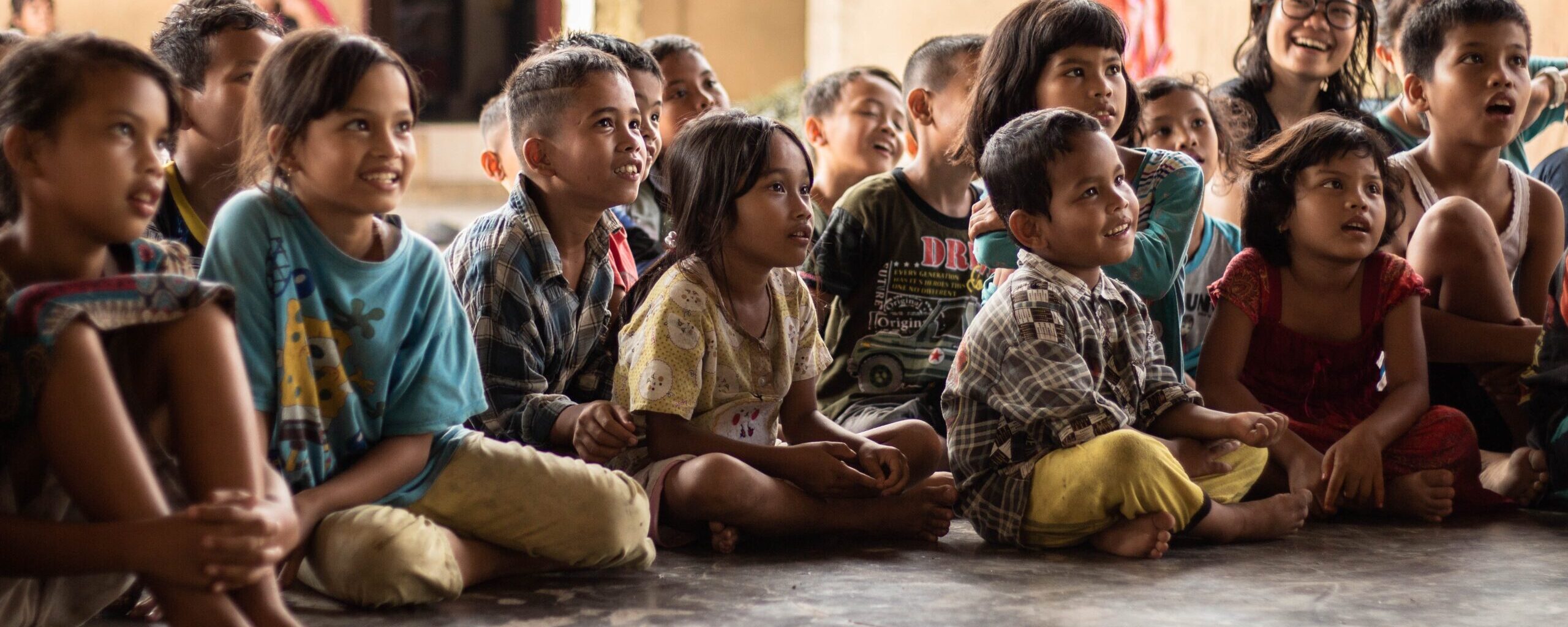Reflecting on children’s rights and nurturing care on World’s Children’s Day
Simangele Mayisela
Dr Simangele Mayisela, is a Senior Lecturer and Educational Psychologist in the Department of Psychology, University of the Witwatersrand, Johannesburg, South Africa
World’s Children’s Day for 2022 reminds the people of the world to act in unison to observe and ensure the inclusion of all children in all spheres of human existence for a better future. Nation states working together to support Children’s rights through the Convention on the Rights of the Child is a celebrated achievement. Inclusion articulated by No Child Left Behind policies (e.g. UN, European Union, USA, UK) is an example of attempts to ensure children receive equal access to quality education, regardless of differences in abilities, race, nationality, gender and religious affiliation of parents. However, climate change, war, conflict and forced migration are creating immeasurable instability, rendering children vulnerable to gross violations of children’s rights and exposure to physical and psychological trauma.
Nelson Mandela warned that a civilized society is judged by how it treats its children. This is subsumed in the way the child’s full citizenship at birth affords the child dignity and the right to existence, which is statutorily recognised. As a full citizen a child has to be afforded all the human rights and freedoms an adult may have, with the difference that a child is dependent on adults for the realization of their rights and freedoms. Children need the support of parents and guardians, society, and more importantly, the governments who have the responsibility to create conducive conditions for the child to access nutrition, quality education, freedom of play and speech, health, shelter, safety and protection.
The insurmountable global challenges facing humanity include global climate change, wars and political conflict. Children suffer physical and psychological trauma of immeasurable scale from displacement and separation from parents and community, poverty, hunger, and resultant malnutrition. The psychological trauma in younger children emanates from being culturally uprooted and not knowing where they originate from. Having witnessed violence and atrocities, they may either find it hard to trust adults, or they may experience such intense need for nurturing, care and safety that they cling to even abusive adults, exposing them to further abuse like human trafficking, sexual molestation, or indoctrination of boy children into becoming human bombs. Concerted effort and innovations from governments and global humanitarian stakeholders are forever needed to be responsive to address the immediate needs of stateless children who are often denied access to health, especially mental health interventions, education, and inclusion in the broader society. Notwithstanding the plight of girl-children who are born into inferiority, denied opportunities for education, growth and development, resulting in the reproduction of oppressive gender-based intersubjective oppression.
Alongside these children’s rights, the Nurturing Care Framework as a global instrument, casts some light on early childhood development from a proximal child relations, environmental, and cultural context. It is through nurturing practices and activities in adult-child engagements that enhance physical, cognitive, and emotional development that children can develop to their full potential, to grow to be fully functioning adults. Part of the challenging aspect of nurturing care in post-colonial contexts is the lingering violent culture of colonialism, slavery and apartheid, and other oppressive regimes that were driven by racial segregation and hatred of others. The systemic denial of nurturing care, through systems like forced migrant labor and unregulated labor-laws that are unprotective of maternal needs and responsibilities of working-class women, continue to disrupt spontaneous nurturing care by marginalized parents. For instance, in many countries, children are still subjected to corporal punishment by their parents (see https://endcorporalpunishment.org/). While research has shown the detriments of corporal punishment on children, and later in adulthood, the context of parents who resort to this practice should be examined to prevent its persistent use. As controversial as it may sound, many of these parents care for their children. However, most of these parents work hard and far from their home for survival of their children. They leave home at dawn and come back in the dusk; some mothers work as stay-in domestic workers, perpetually leaving young children to care for themselves and at ad hoc day care by community members. It is often in such circumstances that parents, in an attempt to instill self-directed guardianship in children and safety, revert to their transgenerational memory of slavery and use physical chastisement, inducing fear of transgressing parents’ instructions and rules. No access to or costly day-care resources in communities renders daily unsupervised children unsafe and at high risk of being abused or even trafficked. Parents resort to fear-inducing disciplinary strategies, which are economic parenting and cultural care-giving tools for absent parents, yielding temporal protective discipline, in light of the very limited time at the parents’ disposal for caregiving and guidance. Sadly, the transgenerational transfer of the violent colonial culture of slave whipping still lingers in some post-colonial societies, alongside he current context of structural violence prevalent in work conditions that disconnects workers from their family life and parental roles. The agenda for the eradication of corporal punishment needs to continue to advance negating narratives that perpetuate the notion that corporal punishment is a child-rearing tool in many post-colonial societies (see https://www.premiumtimesng.com/features-and-interviews/357207-analysis-hitting-children-is-not-an-african-tradition.html). More important, the business fraternity needs to support family structures and childcare support within the communities of their employees. Building healthy communities where children can grow free from fear of being children, and where being a child does not equate to being vulnerable should be prioritized by all.
On this World Children’s Day, every human sector needs to reflect on how it advances children’s rights and development for a better and sustainable global future.

